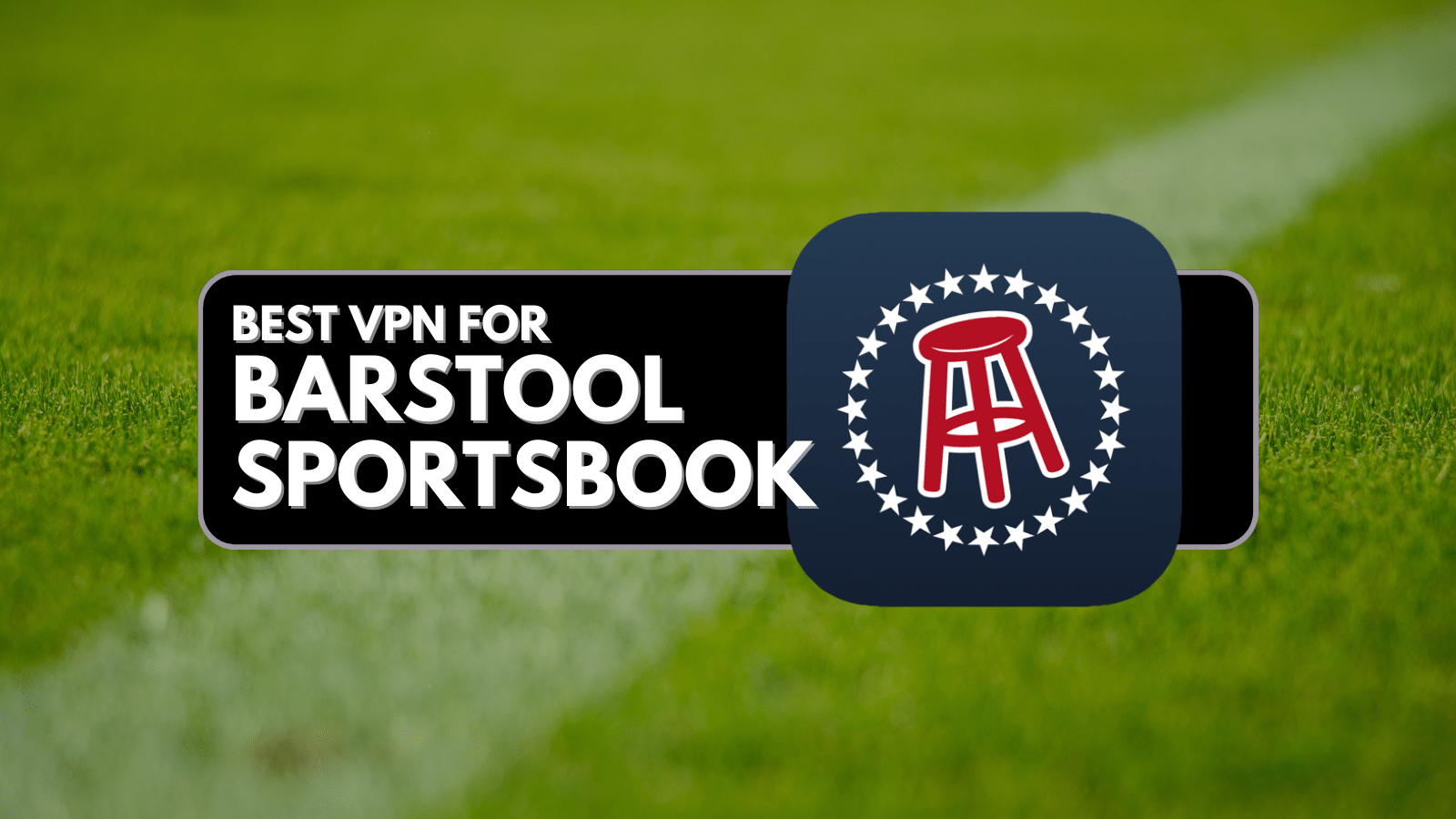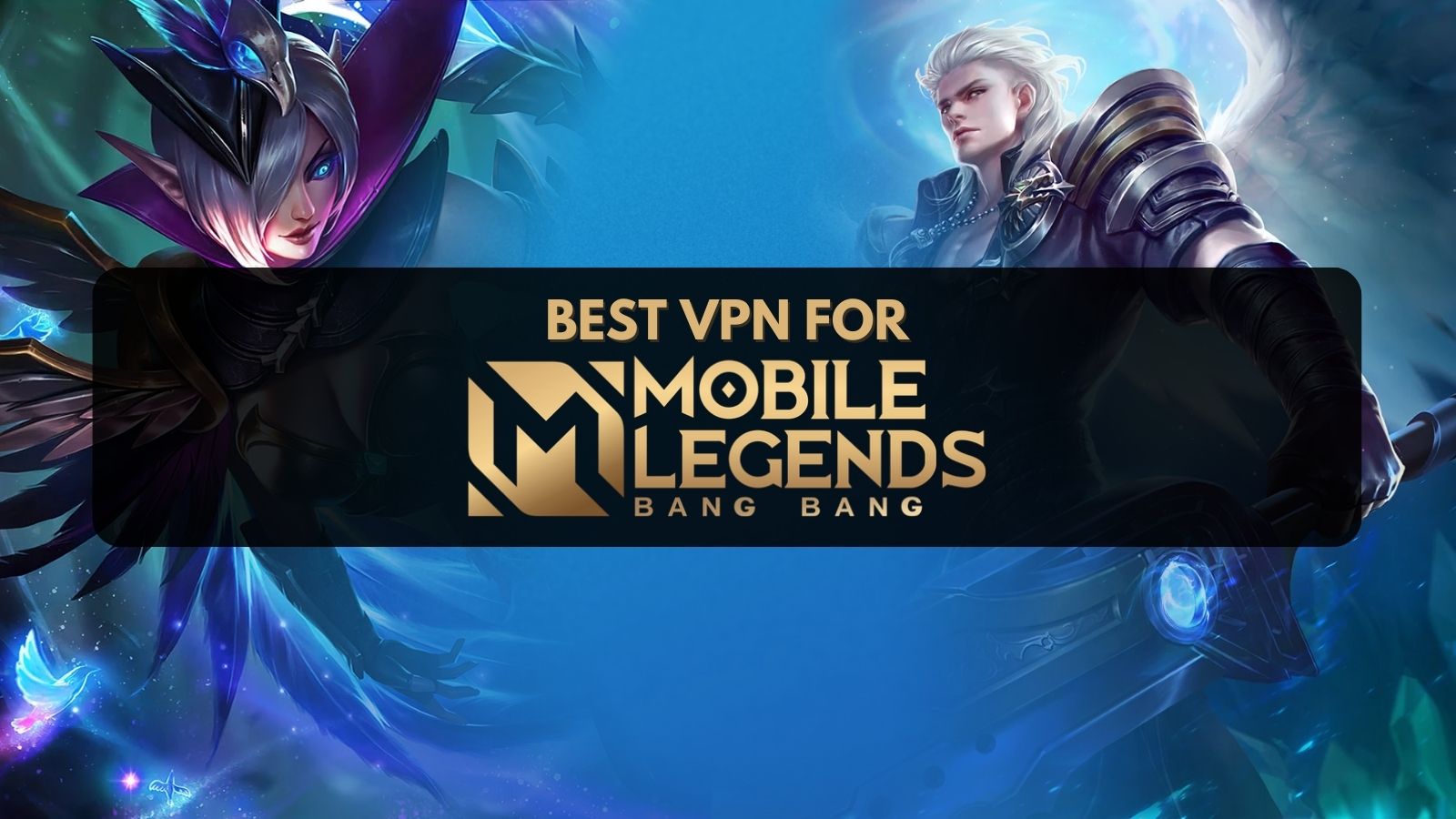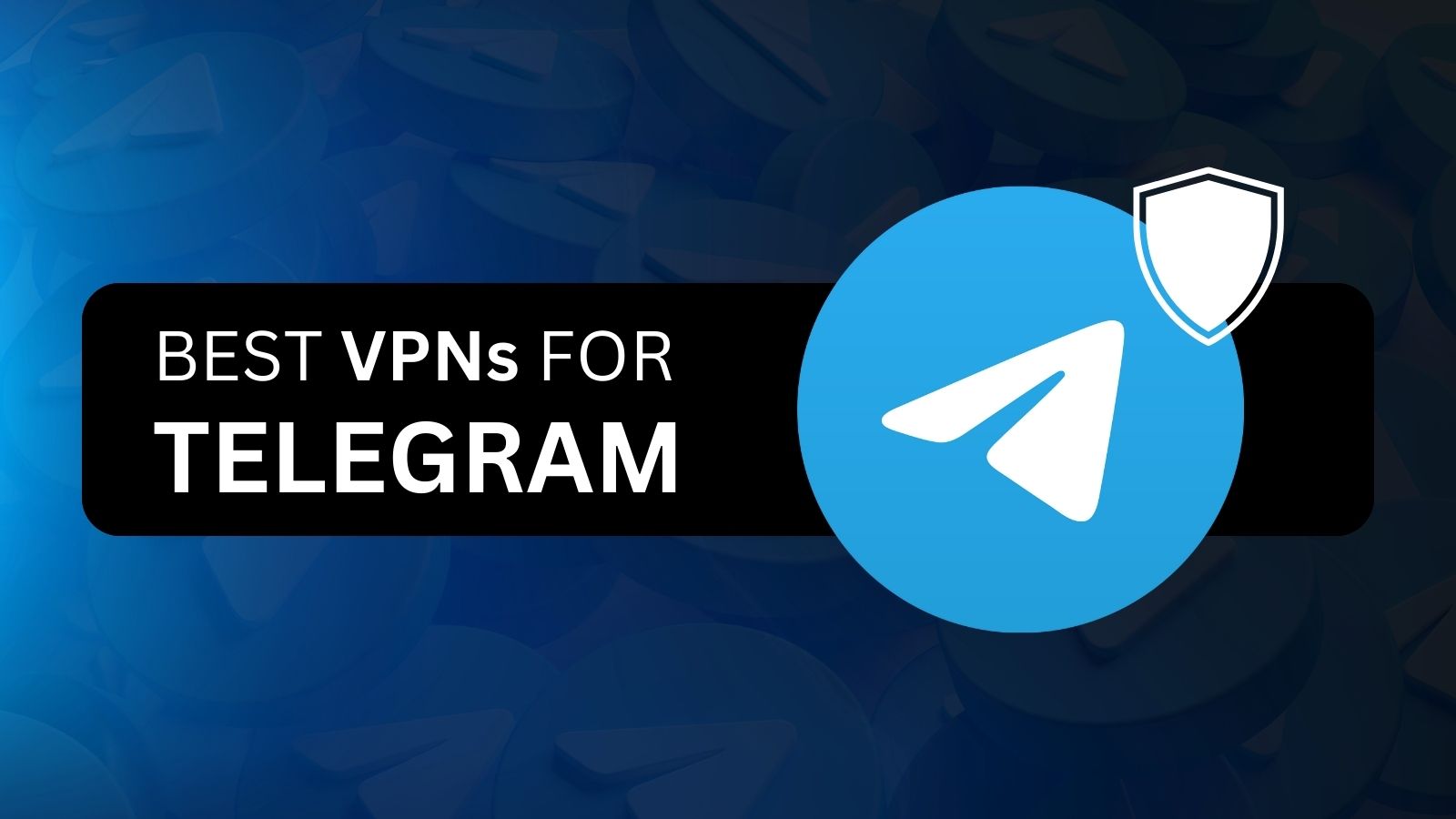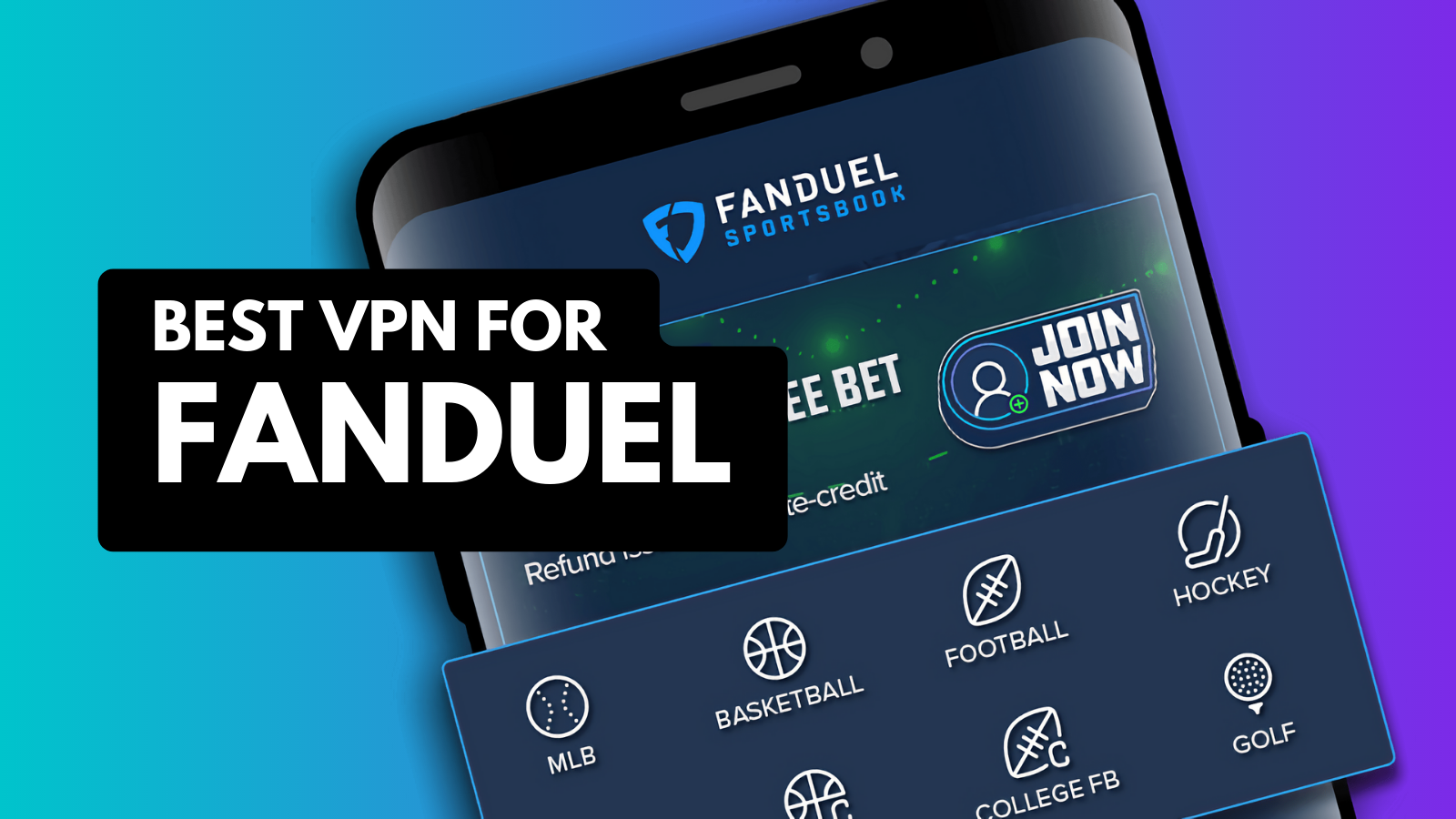When you purchase through links on our site, we may earn an affiliate commission. Here’s how it works.
5 Best VPNs for Online Banking in 2025
Our experts have reviewed 53 VPN providers, which were put through extensive rounds of testing. To learn more about that process, here’s how we review VPNs, where we explain our criteria and our policy of being fully transparent.
Online banking users regularly deal with potential cyber threats and privacy concerns during financial transactions. The added stress of circumventing geo-restrictions can be daunting, particularly for those traveling abroad. Furthermore, accessing banking services over public Wi-Fi poses significant security risks.
Luckily, resolving these issues is a breeze with a VPN. Using a suitable VPN will provide an extra layer of security against cyber threats, ensuring private, secure financial transactions. This means that paying bills can be done safely while using public Wi-Fi. A VPN also helps bypass geo-restrictions, so you can access your bank’s services from anywhere.
In this article, we'll help you find the best VPN for banking and recommend the top 5 ones. We'll also provide instructions for using a VPN to access your financial institutions online and underscore the importance of using a VPN. We'll also guide you in choosing a VPN that aligns with your requirements and address some frequently asked questions.
How to Safely Use a VPN for Online Banking?
If you want to bank online safely with a VPN, first subscribe to a VPN service compatible with your financial institution. Then connect to a server in a country where your bank is accessible. Follow these steps to easily set things up:
- Register for a VPN that is suitable for online banking (we recommend NordVPN).
- Download and install the VPN on your preferred device.
- Log in to the VPN for online banking.
- Connect to a server in a region where your banking services are available.
- Log in to your bank account.
- That’s it! Now, you can start safely banking online from anywhere.
The Best VPNs for Banking in 2025
For help choosing the right VPN for you, check out our article on the best VPNs for guidance. The ideal VPN should be capable of unblocking geo-restricted online banking services, facilitating easy and safe financial transactions. Make sure it has a large global server network for seamless banking access no matter where you’re located.
Next, prioritize performance and speed. Look for features like obfuscated servers, a kill switch, and split tunneling. A VPN should also offer robust privacy and security measures like strong protocols and military-grade encryption. A no-logs policy is also a must-have to ensure your online activities remain confidential.
When choosing a VPN, ensure it supports multiple concurrent connections and is compatible with various devices, including smartphones and computers. It's also crucial to pick a VPN with reliable customer support available around the clock. Finally, opt for a service offering affordable pricing and a money-back guarantee to provide you with a safety net if unsatisfied.
Given the above criteria, these are the top 5 VPN services you can use for safe online banking:
1. NordVPN – Our Best-Rated VPN for Banking in 2025
NordVPN is our top recommendation due to its formidable network of over 6,400 servers across 111 countries. This extensive coverage enables users to access banking services in geo-restricted regions, thus bypassing any limitations and enhancing financial freedom globally.
This VPN excels with its fast speeds and dependable performance that ensure your financial transactions proceed without a hitch. With features like obfuscated servers and its Double VPN, NordVPN adds an extra layer of security to keep your financial data hidden. Its kill switch and split tunneling options also provide greater control over your online privacy.
With its robust AES-256-GCM and ChaCha20 encryption, NordVPN offers exceptional safety for online banking. Its reliable security protocols—including OpenVPN, NordLynx, and IKEv2/IPsec—fortify users against potential cyber threats. Adding to its credibility is an independently audited no-logs policy, which affirms that your sensitive financial data remains private.
NordVPN supports up to 10 simultaneous connections, accommodating devices like smartphones, tablets, computers, routers, and more. It's also very affordable, offering a 2-year plan for as low as $3.39 per month. Users can test-drive NordVPN with complete confidence thanks to its 30-day refund policy. Moreover, customer service is always available, offering 24/7 live chat for queries or issues.
PROS
- Compatible with online banking platforms
- Quick and reliable connections
- Double VPN for added protection
- Robust security protocols and encryption
- Round-the-clock customer support
- 30-day money-back guarantee
CONS
- Obfuscation not on all servers
2. Surfshark – VPN for Banking with Strong Security Features
Surfshark is an excellent VPN that offers access to more than 3,200 servers across 100 countries. Its extensive network coverage enables users to overcome geographic restrictions on banking services, allowing secure transactions no matter their location.
When it comes to online banking, Surfshark's super-high speeds and stable performance are key advantages. Its automatic, network-wide obfuscation adds security, while the kill switch feature provides fail-safe protection in case your VPN connection is interrupted. Moreover, split tunneling facilitates selective data routing, empowering you to actively manage your digital protection measures.
With a Surfshark subscription, your online financial transactions are in safe hands. Adhering to a strict no-logs policy, this VPN uses unparalleled AES-256-GCM and ChaCha20 encryption. Moreover, it employs secure protocols like WireGuard, OpenVPN, and IKEv2 to reinforce your safety, offering you peace of mind while you manage your finances digitally.
Surfshark offers the convenience of connecting unlimited devices, be it computers, smartphones, or tablets, a feature much appreciated in the era of digital transactions. It also has very reasonable pricing, with a 2-year plan available for only $2.19 per month.
The VPN provides round-the-clock customer support as well. Additionally, a 30-day refund period gives users the confidence to try Surfshark without risky financial commitments.
PROS
- Works well with banking platforms
- AES-256-GCM and ChaCha20 encryption
- Follows strict no-logs policy
- Network-wide obfuscation
- Supports unlimited simultaneous connections
- 30-day refund period
CONS
- Users have reported iOS issues
3. ExpressVPN – Banking VPN for Fast and Ultra-Secure Connections
ExpressVPN is a dependable VPN that offers thousands of servers spread across 105 countries worldwide. This vast infrastructure allows it to effectively unblock geo-restricted banking services, making it a valuable tool for those seeking unrestricted financial access on a global scale. Better yet, all its servers come equipped with automatic obfuscation.
With ExpressVPN, you can enjoy swift and efficient online transactions thanks to its consistent performance and ultra-fast speeds. The Network Lock kill switch feature acts as a safety net, halting Internet traffic if the VPN connection drops. Furthermore, its split tunneling allows you to protect your online banking activities while other traffic passes outside the VPN tunnel.
ExpressVPN's robust protocols, including OpenVPN, Lightway, and IKEv2, provide secure connections for online banking activities. With AES-256 and WolfSSL encryption, your data remains protected from potential threats. Additionally, the audited no-logs policy maintains your privacy while conducting online transactions.
You can secure up to 8 devices with ExpressVPN, including smartphones, computers, tablets, and routers. One thing to keep in mind, however, is it is one of the more expensive providers. Its annual plan costs $6.67 monthly.
Luckily, if the service doesn't meet your expectations, it offers a 30-day refund policy, ensuring your satisfaction. Plus, there is 24/7 live chat customer support ready to assist whenever needed. Check out our full ExpressVPN review to learn more about the service.
PROS
- Compatible with online banking
- Reliable Network Lock kill switch
- Solid geo-unblocking capabilities
- Automatic obfuscation on entire network
- Always-available customer service
- 30-day money-back policy
CONS
- Not very customizable
4. CyberGhost VPN – Budget-Friendly VPN for Online Banking
CyberGhost, with its widespread network of thousands of servers in 100 countries, is a digital ally for online banking users. It conquers geographical restrictions on banking platforms, permitting access to financial services often unavailable in certain regions. Its vast reach and strong unblocking capabilities make it a reliable choice for secure banking over a VPN.
With reliable performance and medium-fast connections, CyberGhost is a dependable choice. Although it doesn't offer obfuscation, it compensates with features like a kill switch and split tunneling. These options provide a secure and efficient online banking experience, guarding against potential cyber threats.
This VPN strictly adheres to a no-logs policy, providing users with added privacy during Internet banking. Its use of AES-256-GCM and ChaCha20 encryption, coupled with secure protocols like WireGuard, OpenVPN, and IKEv2/IPsec, gives an extra edge in safeguarding sensitive financial transactions. This makes it a trustworthy choice for banking security.
CyberGhost is an ideal choice for the tech-savvy household with the capacity to connect 7 devices simultaneously, spanning computers to mobiles. It also has budget-friendly prices, so you can snag a 2-year deal for just $2.19 per month.
Add a generous 45-day refund period and round-the-clock customer support, and you have a reliable ally in maintaining online privacy. You can review our complete analysis of CyberGhost VPN for a more in-depth look at the service.
PROS
- Performs well for digital banking
- Strong security protocols
- Strict no-logs policy
- Customer service available anytime
- 45-day refund policy
CONS
- Does not have obfuscation
5. Private Internet Access – Customizable VPN for Banking Safely Online
With thousands of servers spanning 91 countries, Private Internet Access (PIA) makes it easy to use a VPN for dealing with finances online. It can unblock banking services in geo-restricted countries, granting you the ability to perform transactions regardless of your location. This makes global banking more convenient and accessible, all while keeping your identity secure.
With PIA, you can rely on steady performance at average speeds. (You can lower your encryption level if you want to prioritize speed.) It also comes with obfuscation via the Shadowsocks proxy that helps mask your activities. On top of that, you'll get a kill switch for sudden disconnections and split tunneling that lets you decide what traffic goes through the VPN.
PIA equips users with reliable AES-256-GCM and ChaCha20 encryption. You can adjust your encryption level to the highest setting when banking. Its WireGuard, IKEv2/IPsec, and OpenVPN protocols cater to diverse security needs. Moreover, the independently verified no-logs policy promises confidentiality for all your banking activities by ensuring none of your online actions are tracked, stored, or shared.
Additionally, PIA allows unlimited simultaneous connections on various devices, such as computers and smartphones, giving you the flexibility to stay connected at all times. It's also a great choice if you're watching your budget, offering a 2-year plan for $2.19 monthly. Lastly, it comes with 24/7 customer support and provides a 30-day refund window should you be unsatisfied with its service.
PROS
- Supports Internet banking platforms
- Unlimited simultaneous connections
- Obfuscation via Shadowsocks proxy
- Customizable encryption levels
- 30-day money-back period
CONS
- Somewhat complicated for VPN newbies
Should I Use a VPN for Online Banking?
You need a VPN for accessing banking services online to enhance security by encrypting your data, masking your online activity, and protecting sensitive information like passwords and financial data from potential cyberattacks. Other reasons why you need a VPN include:
- Conduct Safe Banking on Public Wi-Fi – Shared Wi-Fi networks are notoriously insecure. The best VPN will provide a secured, encrypted tunnel for your data, protecting your passwords and financial information from potential breaches. This makes activities like paying bills much safer.
- Hide Your Browsing Activities – When you connect to a VPN server, it encrypts your traffic and effectively hides your browsing history from surveillance by various entities like your ISP, government, and hackers.
- Access Your Bank From Geo-Restricted Regions – Online banking services may sometimes be geo-blocked for various reasons in certain countries. With a VPN, you can bypass these restrictions and access your banking services from anywhere in the world.
- Bank Without Worries While Traveling – Using a VPN helps prevent cybercriminals from intercepting and gaining access to sensitive banking information when using hotel or airport Wi-Fi while abroad.
- Get Lowest Prices When Shopping Online – A VPN can help you save money by allowing you to change your virtual location and potentially access better deals that are geographically restricted. It also protects your sensitive financial data while checking out.
Tips on Choosing the Best VPN for Banking
To select a VPN for safely banking online, look for one with an extensive server network and solid security and privacy protocols. These ensure a seamless and hassle-free online banking experience. Other features to look for in a VPN include:
- No-Logging Policy – A VPN with a no-logs policy ensures your online banking activities remain private and won’t be shared with any third parties.
- Strong Encryption and Protocols – Advanced protocols like OpenVPN and WireGuard, along with military-grade encryption like AES-256-GCM, provide an extra layer of security for online banking.
- Extensive Server Network – A large server network provides more options for secure and reliable connections. This ensures uninterrupted transactions.
- Unblocking Abilities – VPNs can bypass geo-restrictions, allowing you to access your banking services from anywhere, including while traveling.
- Obfuscation – Using obfuscation enhances privacy by making your VPN traffic appear like regular Internet traffic, which is ideal for bypassing geo-restrictions on banking services.
- Split Tunneling and Kill Switch – A kill switch will prevent data leaks in the event of a VPN server disconnection, and split tunneling offers more control over what data is protected by the VPN.
- Speed and Performance – High-performance VPNs provide fast and efficient connections, ensuring a smooth online banking experience. They minimize lag, making transactions and balance checks nearly instantaneous.
- Multiple Connections and Devices Supported – VPNs that support numerous simultaneous connections and have apps for multiple devices enable secure banking on all your tech.
- Affordable Pricing – You don't want to break the bank to access your bank, so make sure the VPN has reasonable pricing plans.
- Refund Policy – A money-back guarantee offers peace of mind in case the VPN doesn't meet your banking security needs.
- Support – Reliable 24/7 customer support ensures any issues related to your VPN are promptly addressed.
Final Thoughts
Using online banking platforms without a VPN may lead to restricted access to global banking services and insufficient privacy safeguards. This is especially true while traveling or using shared Wi-Fi networks. The best VPN for banking is recommended to enhance your banking experience and protect yourself from unwarranted monitoring.
NordVPN is our top choice for protecting your online financial matters. Using it ensures secure transactions thanks to its military-grade encryption. It makes it easy to bypass regional constraints and IP-based limitations. Furthermore, its expansive server network, no-logs policy, advanced VPN protocols, and dependable customer service make it an exceptional choice.
That’s all for our guide on choosing the best VPN for safely accessing online banking services. If you have any questions, please leave a comment below. Thank you for reading!






